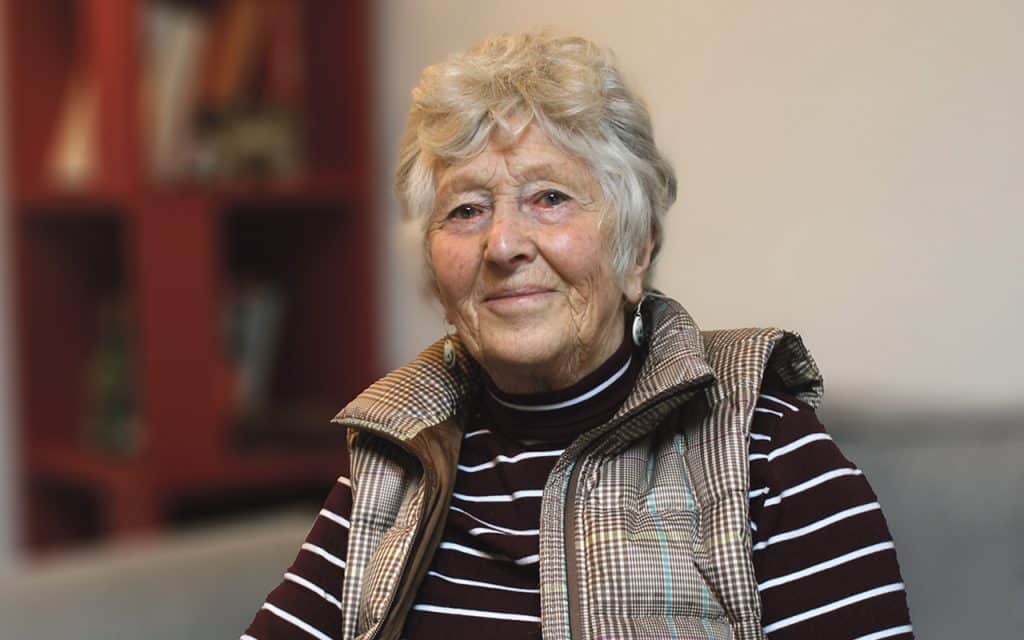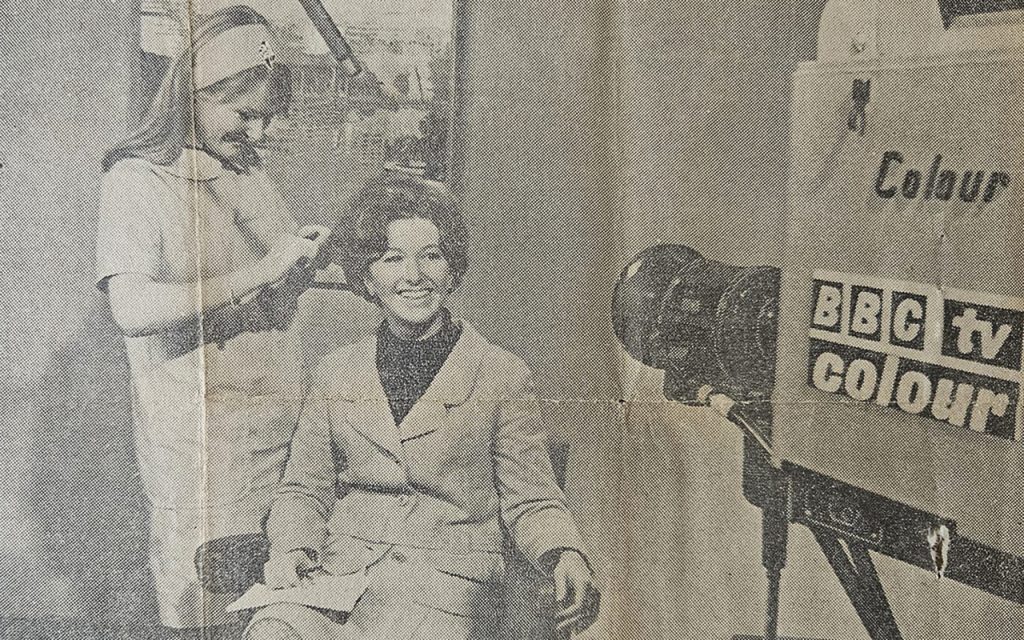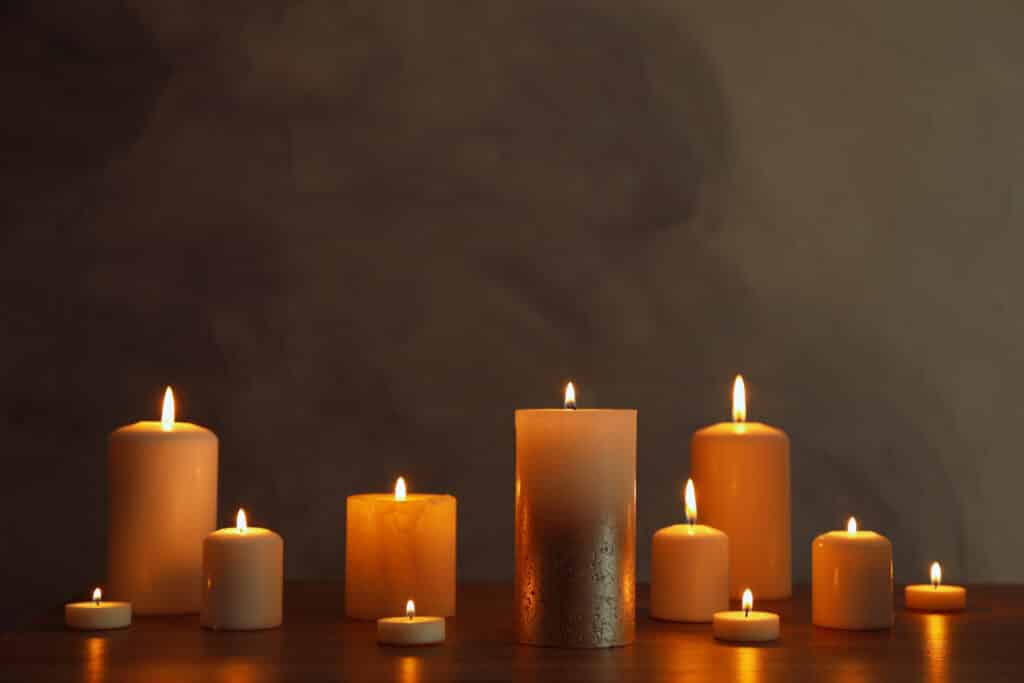If all the world is a stage then actress Fiona York has played many parts. Today the 87-year-old version of herself, living on her own in a pretty little terraced house with a long and narrow garden at the back in Union Hall, is content. While she has been struggling a little with her balance lately, she comes across as ten years younger. “I’ve switched to decaf coffee and I feel it’s making a difference,” she shares. Fiona still takes on acting roles and when she’s not outside in her garden, she’s busy writing her second book, a novel that has been described as “something like the Marigold Hotel comes to West Cork”. She chats to Mary O’Brien about life, love and the challenges and learnings that come with age.

Fiona’s life has spanned continents…Europe, Africa, the United States. She grew up in Waterford, the daughter of Protestants who moved from Northern Ireland after getting married. When she was 12, her father gave up his job to take the family to live in Kenya, where he worked for an import-export business. It was a very happy time with much of it spent out on the great African plains watching and photographing animals. “My childhood was wonderful, filled with animals and social gatherings,” she says. Her mother bred Welsh Corgis and both her parents loved to ride horses.
But the stage called out to Fiona and, at the age of 17, she said goodbye to Africa and travelled to London to attend the Guildhall School of Music and Drama in London. “My father was quite Victorian and didn’t approve of my acting ambition,” she says. “The strange thing was he had no problem with me becoming a musician!” Her mother came up with the idea of her enrolling for a music course but then ‘quietly’ switching over to drama in her second year. None-the-wiser about this scheme, Fiona’s father agreed but insisted she do a secretarial course alongside her Guildhall course. “I wasn’t happy about it at the time, but it came to my rescue on many occasions afterwards as an out-of-work actress,” says Fiona.
Happily ensconced in London, Fiona’s life was a mix of “Shakespeare, fencing, movement, mime, voice, improvisation, lighting….everything to do with the world of theatre”; part-time jobs – as an usherette in a theatre and a waitress; and after hours spent in coffee houses listening to music “where the air was thick with smoke, tobacco and marijuana”.
At the time it was still possible to eat out cheaply in London, at one of the many small and bustling Italian restaurants. “Soho was full of striptease bars and nightclubs, so our dining companions were a mixed bunch,” recalls Fiona “a few girls tottering about in their high heels, half dressed as they had come in for a meal in-between shows; men who would not have looked out of place in a gangster movie; and strangely a few clerics in their dog collars grabbing some food before the next service…”
She became good friends with the actor Oliver Reed and they were a couple for a while. She remembers him fondly. “He was absolutely lovely, his reputation for drinking came much later.”
Fiona left drama school and got a job with a repertory company during the summer season on the Isle of Wight and afterwards dipped her toe into the West End, getting parts in a number of shows, including the play ‘Majority of One’ with Robert Morley. She also worked in film and television.
Off stage she took on various jobs to make ends meet, from selling ties to ironing in a hotel basement. “My best fill-in job was taxi driving,” she shares. She was the only woman with the company. “I gave as good as a I got and survived. I got to know London extremely well.”
In the early 60s, Fiona decided to test the waters in America, spending time in New York and Los Angeles. Unfortunately the bright lights of Hollywood dimmed quickly for the aspiring star.
“I worked at terrible jobs and I was totally broke and I couldn’t wait to get out,” she shares.
One of her jobs involved stuffing donuts with jam from midnight until eight every morning.
She did however find accommodation in the most extraordinary setting; renting a small cabin from a Swedish woman who “had a green oasis in the middle of Hollywood literally surrounded by skyscrapers.”

After getting an audition with an Irish production company for a part in ‘The Playboy of the Western World’, Fiona travelled back to New York with a friend. “We didn’t have enough money for the bus,” she recalls “ but we heard of a guy who was running a car delivery agency for people who had driven over to the West coast on holiday and didn’t want to drive back.”
Fiona and her friend signed up and drove back to New York. “I think we left LA on a Tuesday and arrived into New York very early on a Saturday morning. We didn’t stop overnight,” she recalls.
Fiona got the part and, after touring with ‘The Playboy of the Western World’ for a while, she returned to London, where she got a job as a theatre agent, followed up by a role as an announcer for UTV. “It was the first time I was earning lots of money.”
She bought a small cottage, two-up, two-down, with a little garden, at the unfashionable end of King’s Road in Fulham and around this time got hooked on the idea of living self-sufficiently.
She also met a man and they had a son together. However the relationship became abusive and after it ended, Fiona started thinking about returning to Ireland.
“I was living with a girlfriend in London but I knew I didn’t want to bring my child up there,” she explains. London was becoming increasingly expensive and inaccessible. “I found I couldn’t afford to do any of the things I loved, like eating out or going to the theatre.”
Nervous about bringing her son to Ireland without a father, but with enough money from the sale of her house to move to the countryside in England, Fiona decided to start with a move to Gloucester. “It was on the right side of England for getting the ferry back to Ireland,” she explains.
A few years later in the early 1970s, she took the plunge and bought a cottage with a half acre, sight unseen, just outside Skibbereen, meeting her future husband, Tim, on the ferry trip over. She was a mother, already well-travelled, with life experience. With a shared dream of self-sufficiency, they went on to raise a family and build up a business together.
When the couple’s dream outgrew the half acre in Skibbereen, they purchased a bigger property outside Ballydehob where they set up a business growing vegetables.
“We had an old teapot, which sat on the countertop in the kitchen; that was our bank at the time and sometimes it was completely empty and other times it was overflowing,” recalls Fiona nostalgically. “Ballydehob was full of people doing wonderful things at the time.”
She recalls travelling to the fish factory in Schull where they bartered vegetables for fish. “I remember one guy coming up to the back of our van and taking an enormous bite out of a courgette thinking it was a cucumber. We grew a lot of veg that people hadn’t seen before.”
After Tim accepted a job in a walled garden on an estate in Sligo, the family moved away from West Cork for a time. “On the way out of Ballydehob we left the keys of the house with the owner of the garage in the village with instructions to let anyone interested in purchasing have a look.”
After eight years in Sligo during which time Fiona returned to acting, the couple moved to Fiona’s native county, Waterford, starting up their organic vegetable growing business again. “We even tried our hand at growing grapes and making wine,” she says. “We had great fun harvesting in the pouring rain!”
With the rise of the farmer’s markets and increasing demand for organic produce, the business was very successful.
After making the decision to sell up and return to West Cork, purchasing a property near Turkhead, the couple parted ways a few years later.
Fiona was 72 when her marriage ended. After almost four decades, it came as a huge shock, turning her world upside-down. “It was awful, terrible, suddenly being out in the world on my own after being with someone for so long,” she shares.
While today she admits to missing the companionship that comes with being in a relationship, Fiona loves life and lives it to the full. She is a curious soul, turning every corner in anticipation of a new adventure. She has published her memoirs, still does some acting, has taken up learning Irish again and has created a beautiful garden.
Throughout her acting career, Fiona has appeared frequently on stage and in film and television is possibly best known for her role in the Irish soap Fair City and her one-woman production of ‘Rose’, the story of an elderly Jewish woman, which received much acclaim.
Today her choices are more considered, reflective; less reactive, as is so common in the first half of life.
She finds joy in family and friendships.
“My biggest regret is that my three children all left Ireland,” she says. Her daughter has just returned, after gaining employment as a nanny in Waterford, and Fiona is thrilled.
Her closest group of friends have known each other for over 50 years.
“Friendship is so important.
“That’s how the idea for the book came about. A conversation in a pub about us all living under the same roof when we’re old.
“We just laughed about it at the time but I think about it more now.”



